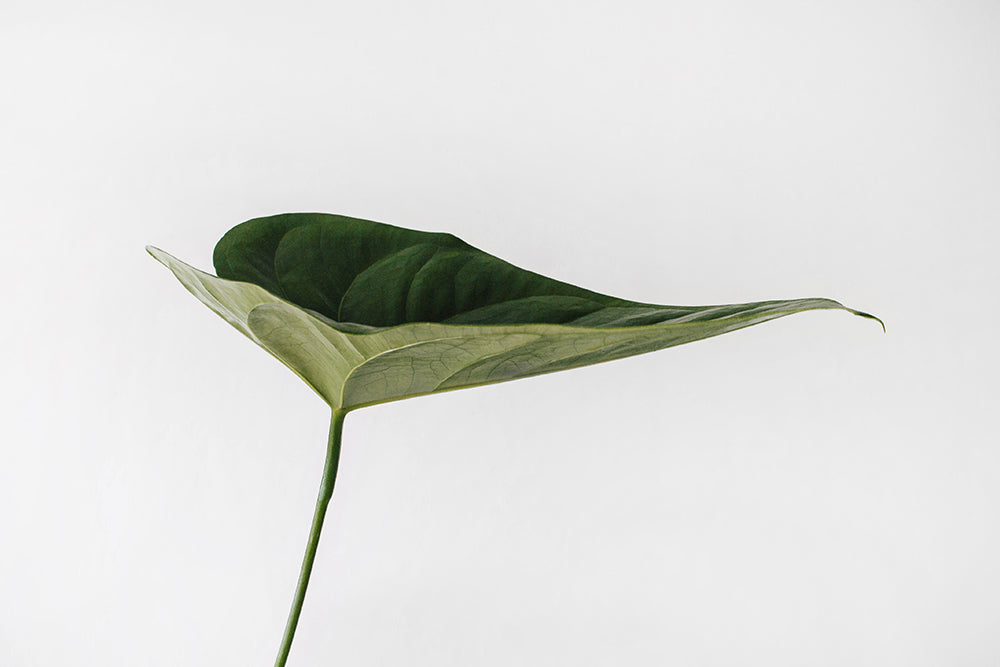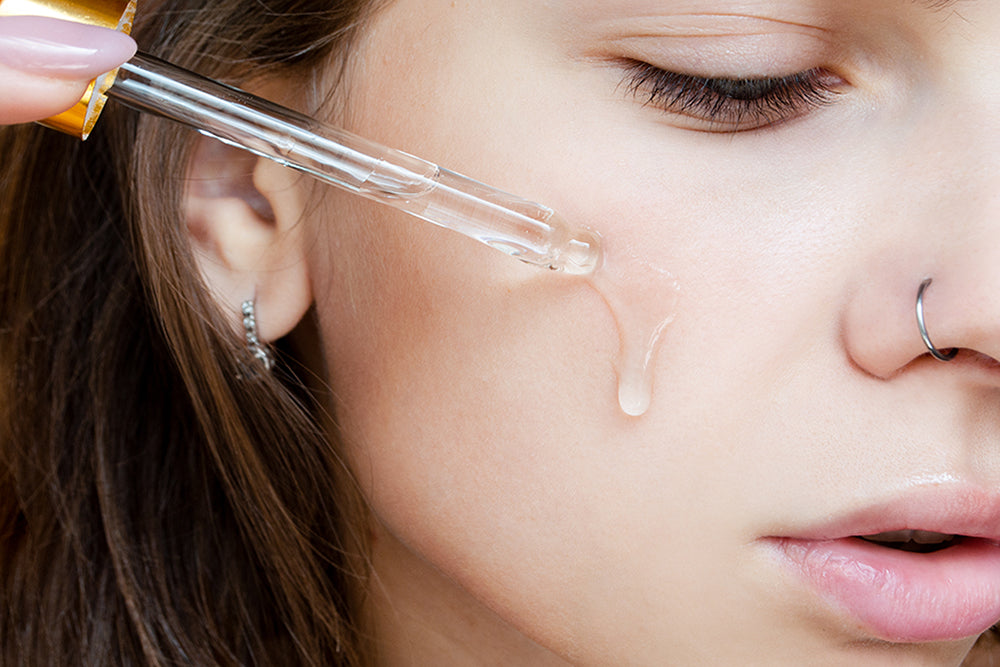
sustainable beauty

the bottom line
We look for sustainable products in our everyday household items - metal straws, shopper totes, reusable water bottles - so why not carry this practice over into our beauty routines? From ethical sourcing and sustainable packaging to thoughtful manufacturing and cruelty-free products, not all skincare products are equal. The important “stuff” can get lost with so many buzzwords thrown onto packaging and into advertisements. Here, we break it all down and steer you towards truly green sustainable beauty.
first layer: ethical sourcing
Often overlooked, ethical sourcing is rarely taken into consideration during product development, but this practice is critical to sustainable beauty because it helps us to preserve some of the earth’s most endangered resources. Ethical sourcing can prevent further deforestation and works to keep scarce natural resources safe. When companies choose a diverse range of ingredients, it can also potentially minimize the impact on each resource and help to keep natural ecosystems intact.
While we can’t control whether a company chooses ethical sourcing practices or not, we can each elect to use products from a brand that takes great care and pays attention to where and how their ingredients are sourced and manufactured.
second layer: sustainable packaging
What’s on the outside is almost as important as what’s on the inside. Unfortunately, many beauty brands still rely heavily on single-use virgin plastics (as opposed to recycled plastics or refillable options) for their packaging. Larger brands have proposed a sustainability plan which cuts virgin plastic use in half by 2025, with the introduction of alternative materials that are natural and compostable, such as cardboard and bamboo. Even after these changes, they’ll still be producing hundreds of tons of waste on an annual basis – it's still a sizable footprint which will not be fixed in the near future.
With this in mind, it’s wise to look for sustainable beauty brands that have eco-friendly principles not just in their products, but on the outside too. While it can be difficult to use entirely recyclable packaging with zero waste, small changes can still make a difference. Almost all of the elements of our packaging at anokha are recyclable. We’ve shifted from plastic to glass bottles for all but one of our products, and have replaced our eyedroppers with orifice reducers, which have a smaller carbon footprint (and are really cute, to boot). Sustainability in our packaging continues to be a priority as we evolve and find new and different ways to lessen our environmental impact.
third layer: thoughtful manufacturing
Sustainable beauty brands also need to be thoughtful about the impact they’re creating with the manufacturing process itself. Ideally, companies should have waste management procedures in place that limit water and energy, minimize the manufacture of by-products, offset carbon output, and utilize recyclable materials. While a company’s manufacturing policies may not always be obvious, there are some positive indicators that you can look out for. For instance, manufacturing in small batches benefits the environment by limiting waste - and it also benefits the customer by providing fresher and potentially more effective beauty products.
Thoughtful manufacturing also includes other factors such as using only natural ingredients with proven efficacy, and not adding unnecessary ingredients for purely aesthetic purposes. anokha eschews the use of ingredients solely on the basis of trends and marketing.
fourth layer: cruelty-free practices
Last but certainly not least, cruelty-free practices are playing a growing role in both consumer expectations and beauty brands’ ethos. But keep in mind that a statement of being cruelty-free does not imply that the products are vegan or animal free. “Cruelty-free” simply indicates that the product’s ingredients have not been tested on animals in any stage of development.
While animal testing has been banned in the U.S. in March 2014, animal testing is still routinely practiced in some countries, and may even be a requirement for sales. In one notable case several years ago, an established makeup brand was called out on social media for its move to China and its subsequent institution of animal testing. People for the Ethical Treament of Animals (PETA) advocates that we not be fooled by the "no animal testing" claims on most packaging, as the Food and Drug Administration (FDA) doesn’t regulate “cruelty-free” or “not tested on animals” claims.
With that in mind, it’s important to purchase from brands you trust. Good indicators of ethical practices include Leaping Bunny and PETA Cruelty Free certificates. While their logos may not be on the product’s packaging, this information is typically on a brand’s website, the Leaping Bunny approved brand list, or the PETA product database. When in doubt, contact the brand directly. anokha is proud to be certified by both Leaping Bunny and PETA Cruelty Free.
a little plug: anokha® checks off each box of sustainability during product development. For instance, rather using endangered Indian sandalwood in our jasmine serum, we’ve moved to the more sustainable Australian sandalwood. We treasure our planet and its amazing bounty, and we know that you do, too.
All this and more at www.anokhaskincare.com .
Add a beautiful layer to your inbox here by joining our newsletter.
xx
anokha
references:
https://www.sustainablejungle.com/sustainable-beauty/sustainableconsumer/



leave us a comment
This site is protected by hCaptcha and the hCaptcha Privacy Policy and Terms of Service apply.